What is Shoulder Arthroscopy (Key hole surgery)?
Shoulder arthroscopy is generally day surgery meaning the patient goes home on the same day as surgery. You cannot eat or drink anything after midnight the night before surgery unless specifically instructed to do otherwise.
A 4 mm camera called an arthroscope is inserted into your shoulder to closely inspect the joint and surrounding tissues. Specialized instruments inserted through small puncture holes are used to treat the pathology such as a torn labrum in an unstable shoulder or a torn rotator cuff in a weak and painful shoulder. The surgery itself typically takes 1-2 hours but expect to be at the hospital most of the day. You will need someone to drive you home and you must have someone at home with you for the first night.
Depending on your health and age you may be required to be seen in the pre-admission clinic at the hospital by our anaesthetists. You will be given a general aesthetic (put to sleep) for the procedure. You may be offered a nerve block by the anaesthetist which involves freezing the nerves to the arm by injecting anesthetic medication around the nerve to your arm with a needle inserted on the side of your neck. The block can last anywhere from 6 – 18 hours depending on a number of factors. It is important that you take pain medications when you get home to avoid playing “catch up” with your pain when the nerve block wears off.
Post Operative
Sling - You will wake up with sling on. This must be worn at all times until you see your surgeon. Typically you will be required to wear a sling at all times, including while you sleep for the first 6 weeks. It is crucial that the sling is worn to allow the repaired tissues to heal. You may take the sling off several times per day for 5 – 10 minutes to move your elbow and wrist and perform pendulum exercises. You may also take the sling off while being supervised by your physiotherapist.
The sling provided by the hospital is a basic sling is not very comfortable or robust. There are specialized slings that may be more comfortable that can be purchased prior to surgery. In some cases, such as massive rotator cuff tears, your surgeon may insist that a sling with an abduction pillow be used to decrease force across the repair. If you have extended benefits, through work for example, most of the cost of these devices is typically covered. Please see our page highlighting the slings and/or discuss any questions or concerns regarding a sling with your surgeon or their office assistant.
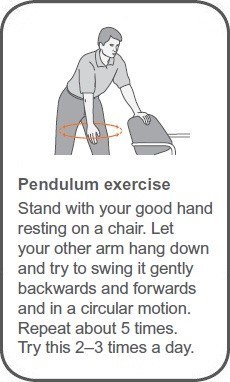
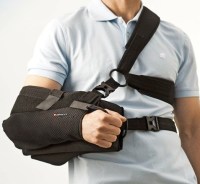
Postoperative Discomfort - Even though the surgery is done through small incisions it is sore. Rotator cuff surgery tends to be especially uncomfortable. After rotator cuff surgery most people feel most comfortable sleeping in a reclining type chair for the first couple of weeks. A ‘zero gravity’ type chair may be something you want to think about purchasing prior to surgery if you do not have a recliner at home.
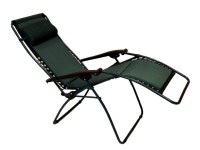
Pain Management
Medications – You will be provided with analgesic medication to help manage your pain in the first several weeks. You can taper off of the medication as soon as your pain starts improving. Tapering down from the narcotic medication onto Tylenol and/or anti-inflammatory medications (such as Advil/Ibuprofen, Aleve/Naproxen or Celebrex) after the first several days is a good way of avoiding some the side effects of narcotic pills (such as constipation and drowsiness).
Consistent icing in the postoperative period dramatically improves pain and decreases swelling and inflammation. This can be done with bags of ice or ice packs on the shoulder. A very useful device for icing is an automatic ice machine (e.g. Cryocuff, Polar care) which is used to help ease the pain and speed the recovery. These can be purchased prior to surgery if you wish. If you have extended benefits, through work for example, most of the cost of these devices is typically covered. Any further questions regarding these products can be obtained from your surgeon or their office assistant.
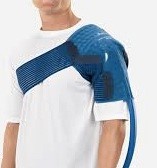
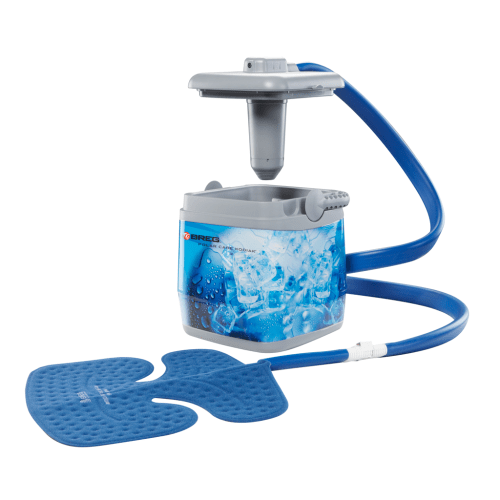
Dressing & Wound – You will have a bulky dressing on your shoulder when you leave the hospital. This should be worn for the first 2-3 days and then it can be removed. You will see thin tapes (Steri-strips) over the incisions. These strips should be left on until follow up or until they fall off.
You are allowed to shower starting post-operative day 5, but should avoid soaking the wound (e.g. bath, swimming pool) until about 2 weeks after surgery. A light protective gauze type dressing should be reapplied after the bulky dressing is removed. These can be purchased at a drug store. When you shower you can allow your arm to dangle at your side with the sling off but you must not raise or lower that arm under its own power as this can put the surgical repair at risk.
If you notice signs of infection such as fevers, chills, or increasing redness around the wound you should see your family doctor, contact your surgeon’s office or go to the emergency department.
Physiotherapy - Physiotherapy is crucial after any surgery. You will need to attend physiotherapy and the government does not cover this cost. If you do not have insurance (e.g. extended benefits) you will need to save money to allow you to attend physiotherapy after surgery. A physiotherapy prescription will be given to you when you leave the hospital or at your first postoperative visit. Typically after shoulder surgery physiotherapy is begun between 2-6 weeks after surgery.
Return to Work - Everyone is different and every job is different. You should expect to take 10-14 days off of work if you have a ‘desk-type’ job. You may need more time off depending on how extensive your surgery is and how much discomfort you have postoperatively. Patients with more labor intensive jobs will require at least 4-5 months off of work prior to returning to their regular duties. After rotator cuff repair patients need at least 6 months off of heavy labor.
Follow-up Appointments - You will need to make a follow up appointment for 2 weeks after surgery. Typical visits will be at the 2, 6 and 12 week marks to check on your progress and answer questions. Most of your visits will be in the cast clinic and it will be very busy. It is not uncommon for the clinic to run significantly behind schedule.
If questions arise prior to your surgical date feel free to make an appointment to discuss your concerns with your surgeon in the office.
Conditions Treated
Shoulder instability – Labral or Bankart tear
Frozen Shoulder
Rotator cuff tears
Shoulder impingement
Acromioclavicular arthritis
Calcific tendinopathy of the Rotator cuff
Biceps Tendinopathy
